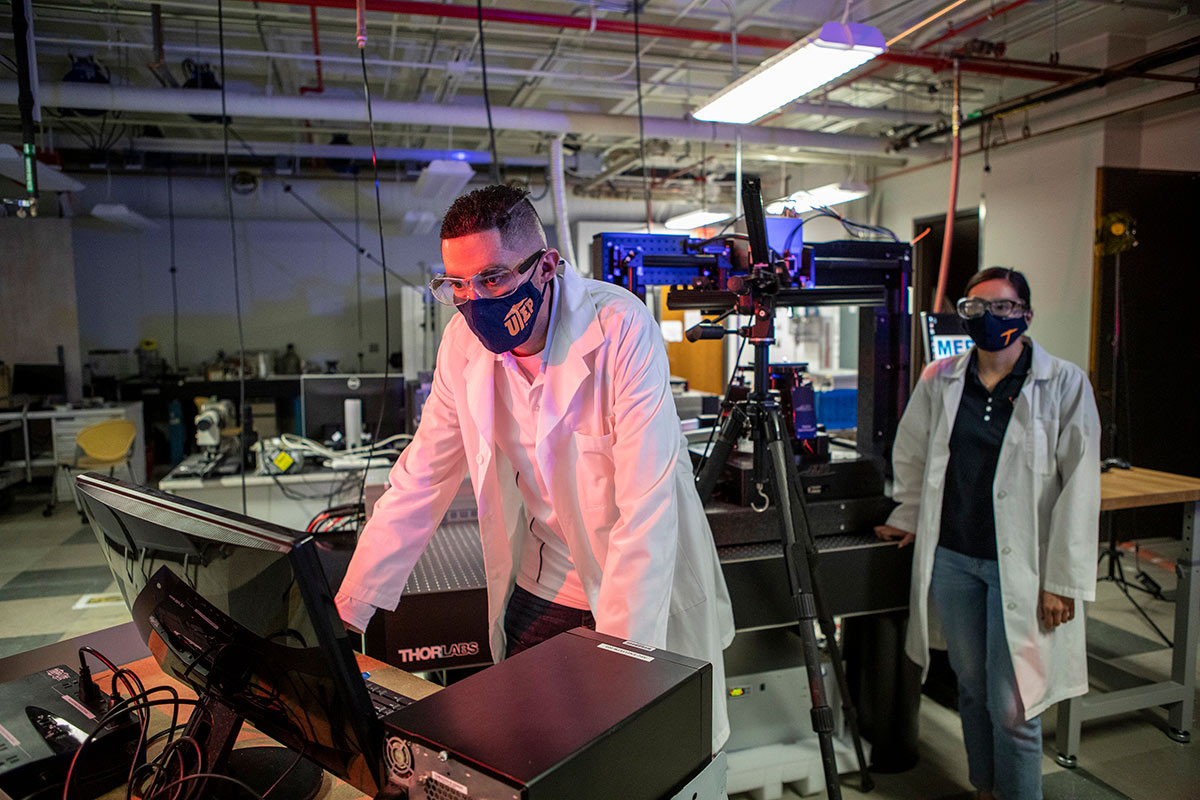
UTEP Receives $3M NSF Grant to Enhance STEM Education for Hispanic Undergrads
Last Updated on October 19, 2021 at 12:00 AM
Originally published October 19, 2021
By UC Staff
UTEP Communications
EL PASO, Texas (Oct. 19, 2021) – A team of researchers at The University of Texas at El Paso will enhance the success of undergraduate Hispanic students in STEM disciplines through a $3 million grant from the National Science Foundation’s (NSF) Improving Undergraduate STEM Education: Hispanic-Serving Institutions Program.

The NSF awarded the funding for a project that seeks to increase the number of Hispanic students, in particular Hispanic women, who are competitive in STEM careers. The project centers on improving students’ educational experiences through shared knowledge about effective practices; faculty professional development and community building; and inclusive, data-informed decision-making that leads to continuous improvement.
John Wiebe, Ph.D., provost and vice president for academic affairs, serves as the grant's principal investigator, and the project will be co-led by Ann Gates, Ph.D., senior vice provost for faculty affairs.
“This award will allow us to work with our faculty colleagues in STEM domains to make systemic change, leveraging our unique student body to shift the demographics of these key career fields,” Provost Wiebe said.
Other members of the UTEP research team are Cigdem V. Sirin, Ph.D., director of the Center for Faculty Leadership and Development; Christina Convertino, Ph.D., associate professor of teacher education and Roy Mathew, Ph.D., associate vice president for planning.
To achieve the goal of increased participation in STEM fields at the national level, the University will implement a replicable institutional approach that considers learning outcomes, students’ experiences, internal organizational structures, and external influences.
A key aspect of the project to support long-term impact is capacity building for research on the interplay between STEM education and “servingness,” a concept of incorporating an organizational identity that not only promotes students’ outcomes, but does so in ways that affirm and support students’ cultural and familial backgrounds.
The federal designation of HSI stipulates an institution must have an undergraduate Hispanic enrollment of at least 25%. UTEP has had a Hispanic student majority since 1986 and met the threshold to become a Hispanic-Serving Institution in 1992, the year the designation was first recognized by the Higher Education Act. With a Hispanic student population of 83% and intentional implementation of inclusive excellence, UTEP stands as an exemplar among HSIs. It is one of only 17 HSIs designated as an R1 (top tier) doctoral research university by the Carnegie Classification of Institutions of Higher Education.
